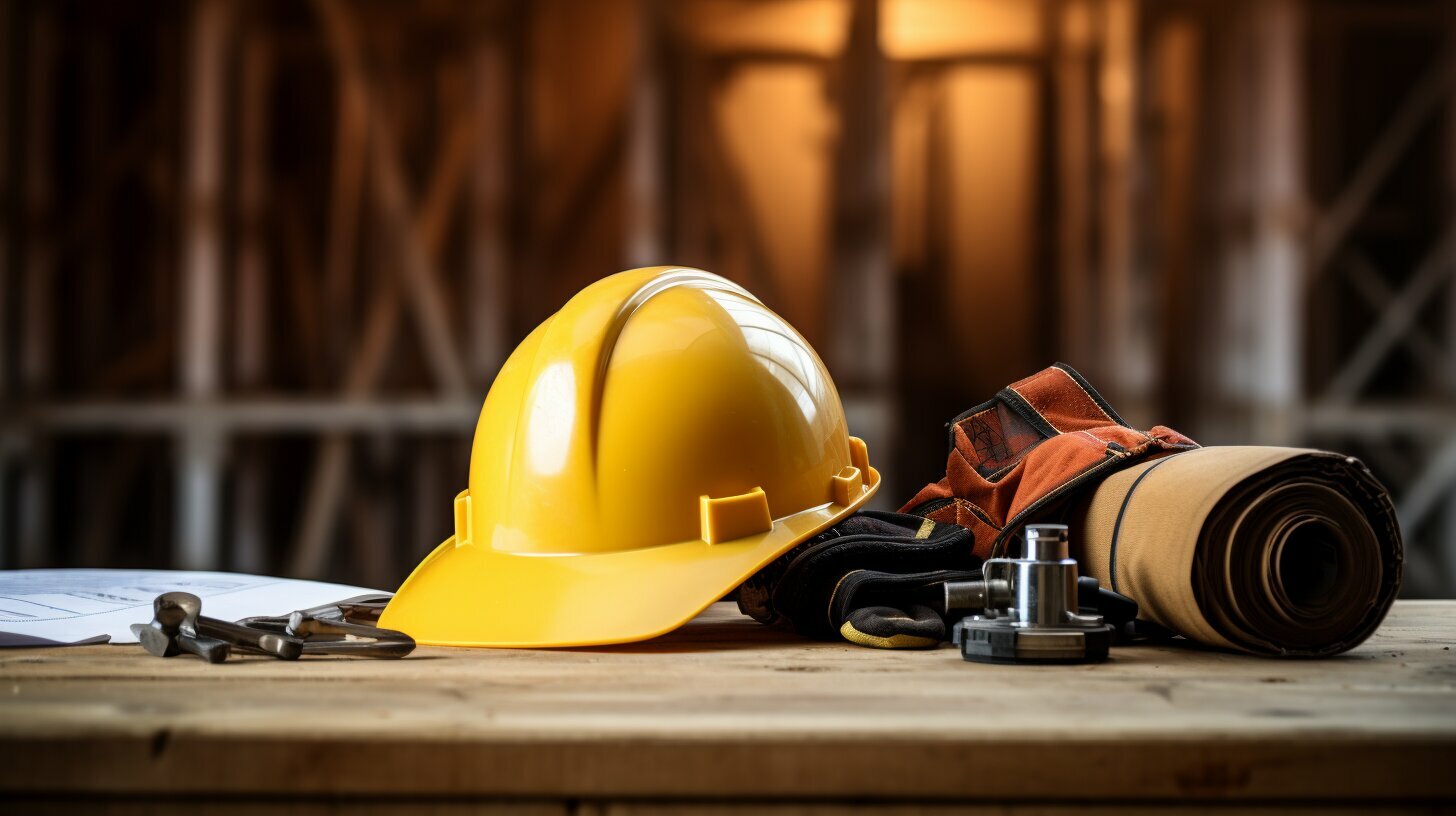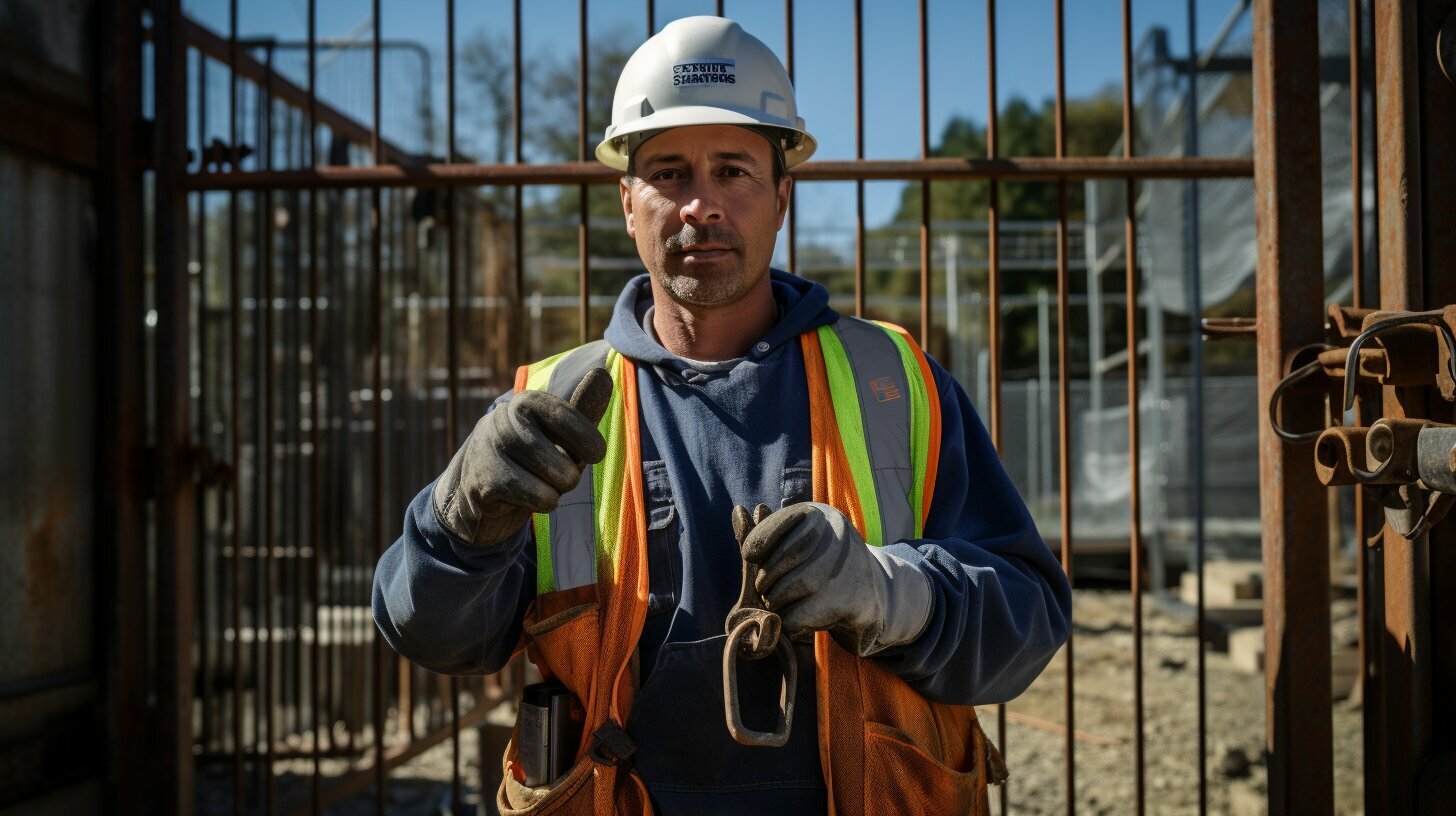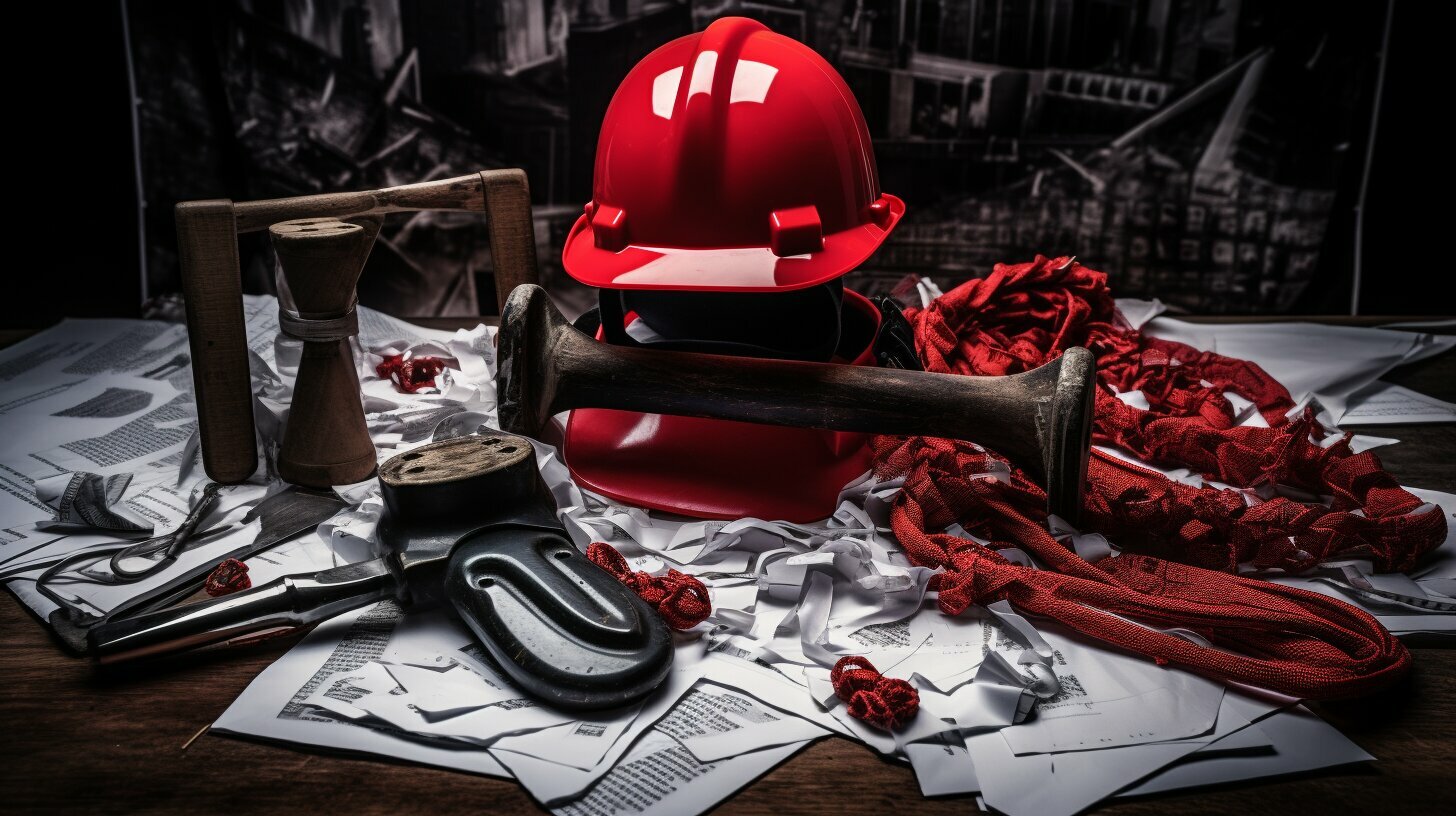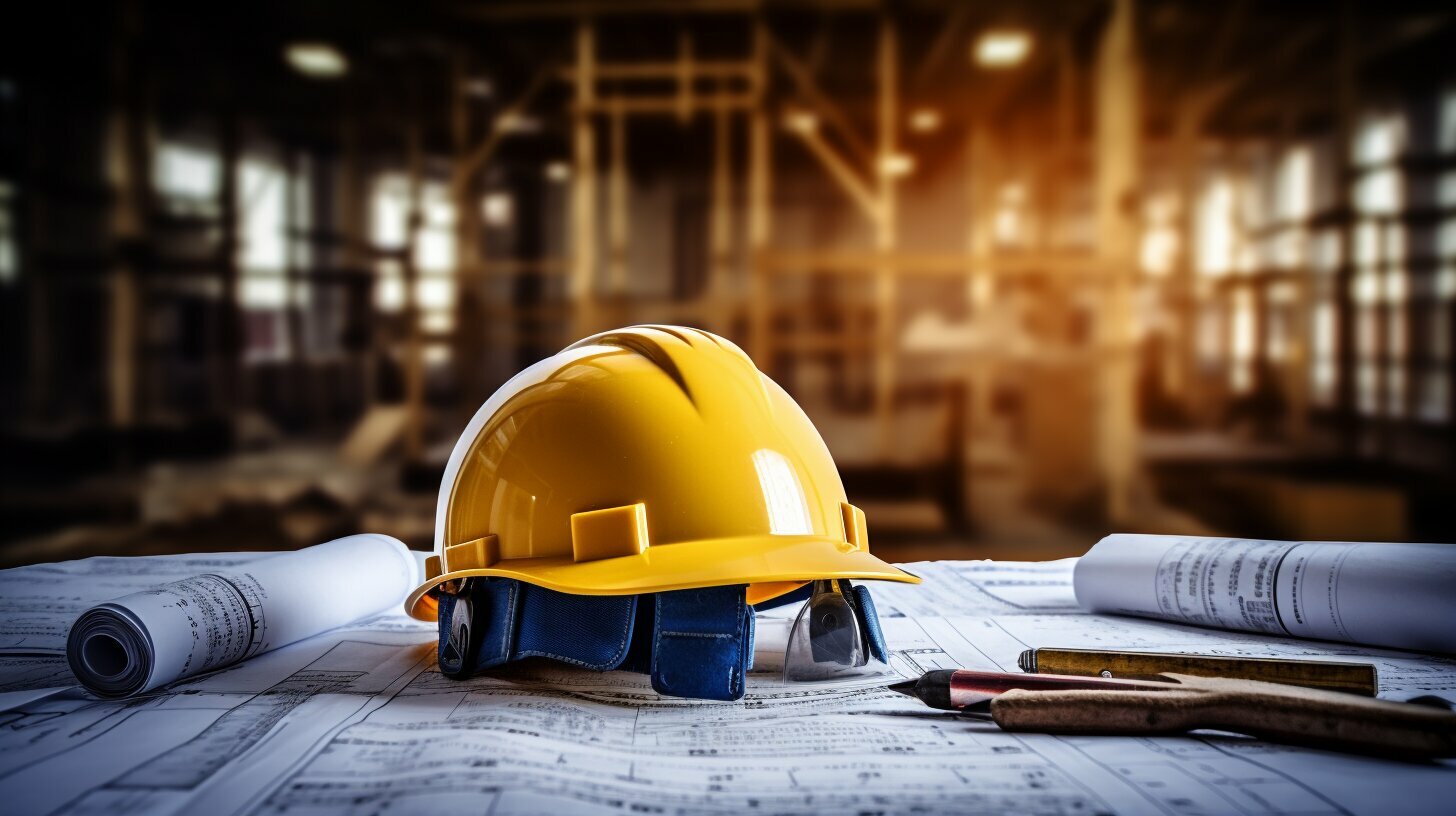
A general contractor plays a crucial role in the successful execution of construction projects by overseeing and managing various aspects of the project. They are responsible for hiring subcontractors, obtaining permits, managing materials and equipment, ensuring project deadlines are met, and maintaining quality control. General contractors are also involved in site management, client communication, and project coordination. Their expertise and specialized knowledge are vital for the safe and efficient completion of construction projects.
Key Takeaways:
- A general contractor is responsible for overseeing and managing all aspects of a construction project.
- They hire subcontractors, obtain necessary permits, and manage materials and equipment.
- General contractors ensure that projects are completed on time and within budget.
- They handle site management, quality control, and communication with the client.
- Hiring a licensed general contractor is important for project safety and efficiency.
Responsibilities of a General Contractor
The responsibilities of a general contractor encompass a wide range of tasks that are vital for the smooth progression of a construction project. A general contractor is the main point of contact for all parties involved, including the client, subcontractors, and suppliers. They are responsible for coordinating and overseeing every aspect of the project to ensure its successful completion.
One of the primary responsibilities of a general contractor is hiring and managing subcontractors. They evaluate and select the best subcontractors for each trade required in the project, such as plumbing, electrical, or carpentry. General contractors also negotiate contracts and set expectations with subcontractors to ensure the work is carried out to the highest standards.
Subcontractor Management
Subcontractor management involves overseeing the work of subcontractors, ensuring they adhere to project specifications and timelines. General contractors are responsible for coordinating the scheduling, delivery of materials, and resolving any issues that may arise during the construction process. They play a crucial role in maintaining effective communication and collaboration between all parties involved.
Additionally, general contractors are responsible for acquiring the necessary permits and licenses required for the project. They work closely with local authorities to ensure compliance with building codes and regulations. This includes submitting and obtaining permits, scheduling inspections, and ensuring that the project progresses in accordance with the approved plans.
Permit Acquisition
General contractors also play a crucial role in material and equipment management. They are responsible for procuring and coordinating the delivery of construction materials, tools, and equipment required for the project. This includes managing inventory, ensuring the availability of materials when needed, and overseeing their proper storage and usage on-site.
Working as a general contractor requires strong leadership and organizational skills, as well as in-depth knowledge of construction processes and regulations. Hiring a licensed general contractor is essential to guarantee a smooth and efficient construction project, as they have the expertise and experience to handle the complexities of the job.
In summary, the responsibilities of a general contractor are multifaceted and crucial for the successful completion of a construction project. From subcontractor management to permit acquisition and material coordination, general contractors play a vital role in ensuring the smooth progression of the project. Their expertise and knowledge are invaluable in maintaining quality, adhering to timelines, and delivering a successful construction project.
Table: Key Responsibilities of a General Contractor
| Responsibility | Description |
|---|---|
| Subcontractor Management | Overseeing and coordinating the work of subcontractors, ensuring compliance with project specifications and timelines. |
| Permit Acquisition | Obtaining the necessary permits and licenses required for the construction project, ensuring compliance with building codes and regulations. |
| Material and Equipment Management | Procuring and coordinating the delivery of construction materials, tools, and equipment required for the project. |
Duties of a General Contractor
General contractors have various duties that require meticulous attention to detail and effective coordination to ensure the successful completion of a construction project. They play a crucial role in overseeing and managing all aspects of the project, making sure everything is executed according to plan and meets the required standards.
Subcontractor Management
One of the primary duties of a general contractor is to hire and manage subcontractors. This involves finding qualified subcontractors, negotiating contracts, and ensuring that their work is completed on time and within budget. General contractors must coordinate with different trades and ensure that all subcontractors are working together harmoniously to achieve the project’s goals.
Permit Acquisition
Obtaining the necessary permits is another essential duty of a general contractor. They are responsible for understanding and complying with all local building codes and regulations, as well as obtaining permits for construction, electrical work, plumbing, and any other necessary permits. Failure to obtain the proper permits can lead to project delays, fines, or even legal issues.
Material and Equipment Management
General contractors are also responsible for managing the procurement and delivery of materials and equipment needed for the construction project. This includes sourcing materials, negotiating prices with suppliers, and ensuring that materials are delivered to the site on time. Additionally, they must oversee the proper storage, handling, and usage of equipment to maintain a safe and efficient working environment.
Project Deadline Adherence
Meeting project deadlines is a crucial duty of a general contractor. They must create and maintain a detailed project schedule, allocate resources effectively, and monitor progress to ensure that the project stays on track. Through effective time management and coordination, general contractors strive to complete the construction project within the agreed-upon timeframe.
In summary, general contractors have a diverse range of duties that include subcontractor management, permit acquisition, material and equipment management, and project deadline adherence. Their role in construction projects is essential for ensuring the smooth and successful completion of the project, while maintaining quality, safety, and efficiency.
Tasks of a General Contractor
General contractors handle a multitude of tasks that contribute to the efficient and timely execution of construction projects while maintaining the highest standards of quality. These tasks encompass various aspects of project management and coordination, ensuring that all elements come together seamlessly for the successful completion of the project.
One of the primary tasks of a general contractor is site management. They are responsible for overseeing the entire construction site, ensuring that it is organized, safe, and compliant with all applicable regulations. This involves coordinating with subcontractors, managing schedules, and resolving any issues that may arise during the construction process.
Quality control is another essential task that general contractors undertake. They are responsible for ensuring that all work is carried out to the highest standards and that all materials and equipment used meet the necessary specifications. This includes conducting regular inspections, implementing corrective measures when needed, and ensuring that the project adheres to all relevant building codes and regulations.
Effective communication with clients is crucial for the smooth operation of any construction project, and general contractors play a key role in facilitating this. They act as the main point of contact for the client, providing regular updates on the progress of the project, addressing any concerns or queries, and ensuring that the client’s vision and requirements are met.
Table 1: Responsibilities of a General Contractor
| Responsibility | Description |
|---|---|
| Subcontractor Management | Hiring and coordinating subcontractors to perform specialized tasks in the construction project. |
| Permit Acquisition | Obtaining the necessary permits and licenses required for the construction project. |
| Material and Equipment Management | Procuring, organizing, and managing the materials and equipment needed for the project. |
| Project Deadline Adherence | Ensuring that the project is completed within the agreed-upon timeframe. |
In summary, general contractors play a pivotal role in construction projects by overseeing and managing a range of tasks. From site management and quality control to client communication and project coordination, they ensure that all elements of the project come together seamlessly. Hiring a licensed general contractor is essential to ensure that the project is carried out safely, efficiently, and in compliance with all relevant regulations.
The Role of a General Contractor in Construction Projects
The role of a general contractor in construction projects extends beyond mere project management, encompassing their expertise, knowledge, and commitment to delivering successful outcomes. A general contractor is the backbone of a construction project, responsible for overseeing and coordinating all aspects of the job to ensure its smooth execution.
One of the key responsibilities of a general contractor is to hire and manage subcontractors who specialize in different trades, such as plumbing, electrical work, or carpentry. They act as the middleman between the client and these subcontractors, ensuring that the work is completed to the required standards and within the agreed-upon timeframe.
In addition to managing subcontractors, general contractors are also responsible for obtaining all the necessary permits and licenses required for the construction project. This includes ensuring compliance with local building codes and regulations, obtaining permits for excavation or demolition, and ensuring that all inspections are carried out as required.
Furthermore, general contractors assume the critical role of overseeing the overall project timeline and budget. They must carefully manage and allocate resources, including labor, materials, and equipment, to ensure that the project stays on track and within budget. Their expertise and experience in construction project management enable them to make informed decisions, resolve any issues or conflicts that may arise, and keep the project moving forward smoothly.
| Responsibilities of a General Contractor | Duties of a General Contractor | Tasks of a General Contractor |
|---|---|---|
| Overseeing subcontractors | Managing permits and licenses | Site management |
| Ensuring compliance with building codes | Material and equipment management | Quality control |
| Project timeline management | Coordinating with clients | Client communication |
Overall, the role of a general contractor is multifaceted and vital for the successful completion of construction projects. Their specialized knowledge, experience, and attention to detail ensure that the project is carried out safely, efficiently, and to the client’s satisfaction. It is crucial for individuals and businesses embarking on construction projects to hire a licensed general contractor who can navigate the complexities of the job and deliver the desired results.
Conclusion
In conclusion, general contractors play an essential role in construction projects, overseeing and managing various responsibilities, duties, and tasks to deliver successful outcomes.
A general contractor is responsible for overseeing and managing all aspects of a construction project. They are in charge of hiring subcontractors, obtaining necessary permits, managing materials and equipment, and ensuring the project is completed on time and within budget.
Additionally, general contractors handle site management, quality control, and communication with the client. Their expertise and specialized knowledge are crucial in coordinating different aspects of the project and ensuring its smooth progression.
It is important to hire a licensed general contractor to ensure the project is carried out safely and efficiently. Licensed contractors have undergone the necessary training and certification, which enables them to adhere to building codes and regulations. This not only guarantees the safety of the construction process but also ensures that the project is completed to the highest quality standards.
FAQ
What is the job of a general contractor?
A general contractor is responsible for overseeing and managing all aspects of a construction project, including hiring subcontractors, obtaining permits, managing materials and equipment, and ensuring the project is completed on time and within budget.
What are the responsibilities of a general contractor?
The responsibilities of a general contractor include overseeing the entire construction project, managing subcontractors, obtaining necessary permits, managing materials and equipment, ensuring project deadlines are met, and maintaining open communication with the client.
What are the duties of a general contractor?
The duties of a general contractor include managing subcontractors, acquiring permits, managing materials and equipment, adhering to project deadlines, ensuring quality control, and maintaining effective communication with the client.
What tasks does a general contractor perform?
General contractors perform tasks such as site management, quality control, coordinating subcontractors, managing materials and equipment, ensuring project timelines are met, and communicating with the client throughout the construction process.
What is the role of a general contractor in construction projects?
General contractors play a vital role in construction projects as they are responsible for overseeing and managing all aspects of the project. They bring expertise and specialized knowledge to ensure the project runs smoothly, safely, and efficiently. It is important to hire a licensed general contractor for project safety and compliance.
continue reading
Related Posts
Obtaining a general contractor license is a crucial step towards
Acquiring a general contractor license involves a multi-step journey that
A general contractor plays a crucial role in construction projects,




